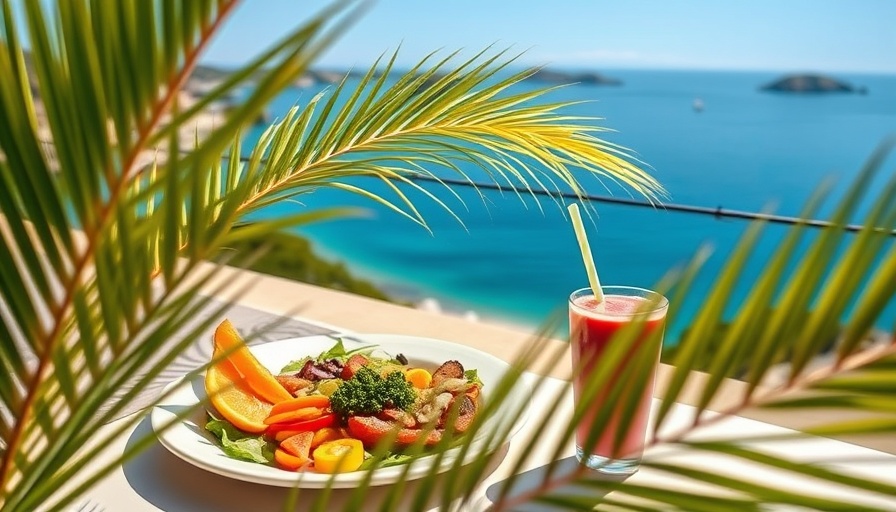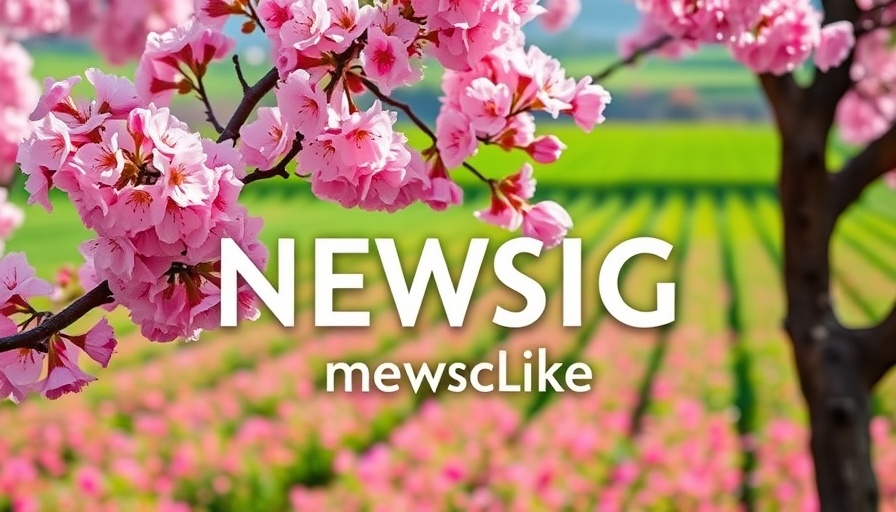
Unlocking the Secrets of Elderflower Syrup: A Summer Staple
As warmer days creep in, the blooming elderflowers beckon us to embrace a natural and sustainable ingredient that can elevate our summer refreshment game. The delightful elderflower syrup recipe shared by the Hotel Weiherhof in South Tyrol offers an easy way to take advantage of this fragrant bloom while contributing to biodiversity.
Why Choose Elderflowers for Sustainable Gardening?
Elderflowers are not only beautiful but also an eco-friendly choice for sustainable gardens. They require minimal maintenance and thrive in various climates, making them accessible to gardeners of all levels. According to Agrar, a trade association, elderberry bushes are "attractive, robust, and easy to care for." These plants not only produce stunning flowers but also support local ecology by drawing bees, butterflies, and other essential pollinators.
The Importance of Biodiversity
When cultivating elderberry bushes, it's crucial to consider the ecological impacts. Not only do the fragrant flowers provide nectar for hymenoptera like honeybees and wild bees, but the resulting berries also serve as a food source for birds and other wildlife. The Hotel Weiherhof has made significant steps towards fostering biodiversity by abstaining from fertilizers for over 20 years, promoting a healthier ecosystem in the area surrounding the scenic Wolfsgruben Lake.
A Step-by-Step Guide to Making Elderflower Syrup
Ready to create your very own elderflower syrup? Follow this simple recipe from the Hotel Weiherhof. The process is refreshingly straightforward and requires no cooking!
- Ingredients: 2 liters of water, 3 kg of sugar, 8 dkg of citric acid, 5-6 organic lemons (sliced), and 12 elderflower heads.
- Instructions: Combine all ingredients in a large container. Let the mixture ferment for five days to allow the flavors to meld. Afterward, strain the syrup and pour it into glass bottles. Store the syrup in a dark pantry—once opened, refrigerate to maintain freshness.
This syrup adds a refreshing twist to your summer beverages. Simply mix with soda or mineral water for a delightful drink!
Connecting with Nature: The Benefits of Foraging
Foraging for elderflowers is not only an exciting activity but also a way to directly connect with nature. Engaging in this practice supports a sustainable lifestyle and deepens your appreciation for local flora. To spot elderberry bushes, look for their distinctive umbel-like clusters of white flowers, often humming with busy insects. If you don’t have access to elderflowers, consider checking local parks or natural reserves where they may flourish.
Local vs. Global Perspectives on Elderflower Use
In many cultures, elderflowers have been used for centuries, from traditional remedies to fermented beverages. In Europe, for instance, elderflower cordial is a favorite souvenir in summer markets. By embracing this global ingredient in our kitchens, we not only enhance our cocktails and desserts but also connect with a history of sustainable practices.
Take Action for a Sustainable Future
As we move towards a more eco-conscious way of living, each small step contributes to a larger change. By making elderflower syrup, you not only enjoy a refreshing drink but also participate in a sustainable lifestyle through foraging and gardening. Let these practices inspire you to explore other sustainable ingredients and support local ecosystems!
So, grab your ingredients and enjoy the process of making elderflower syrup. Not only will you have a delightful drink to share with friends, but you’ll also be making a positive environmental impact in your community. Cheers to a sustainable and flavorful summer!
 Add Row
Add Row  Add
Add 




Write A Comment